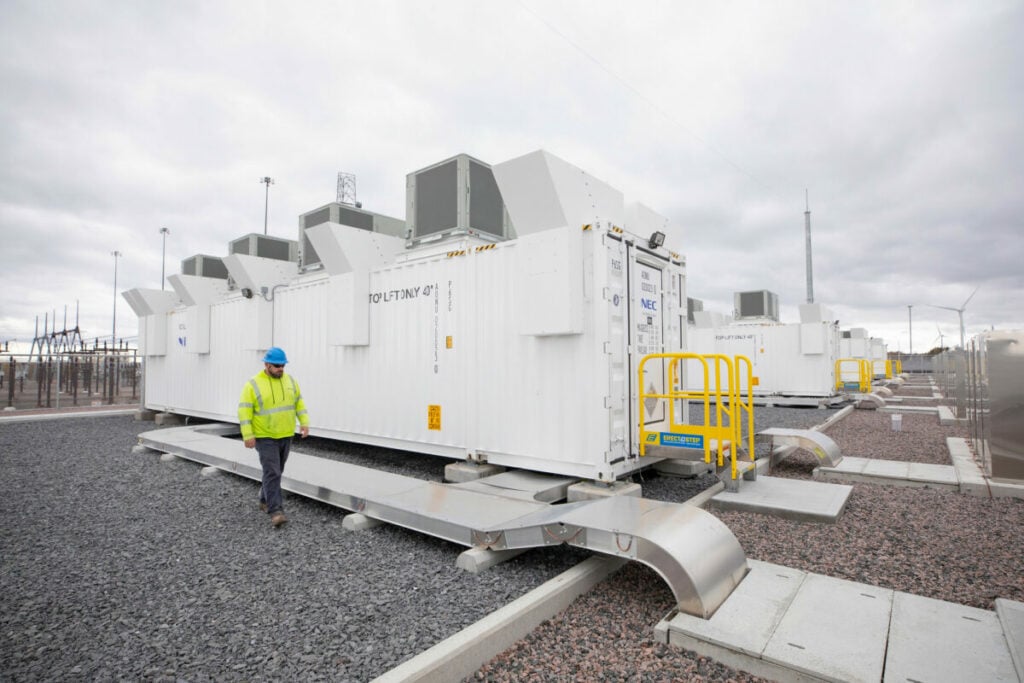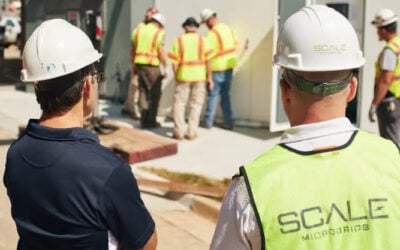
Battery storage is playing an active role in helping New York City retire its fleet of peaker power plants, with around 700MW of its most polluting power generation assets already fully retired.
According to a new report, 4,019MW – about two-thirds of a 6,093MW fleet – has either retired or put in place plans to replace turbines with cleaner technologies since New York adopted its climate goals and environment protection policies in 2019.
Enjoy 12 months of exclusive analysis
- Regular insight and analysis of the industry’s biggest developments
- In-depth interviews with the industry’s leading figures
- Annual digital subscription to the PV Tech Power journal
- Discounts on Solar Media’s portfolio of events, in-person and virtual
In addition to 700MW already retired, around the same amount again is actively being moved towards end of life.
The numbers come from an environmental justice group called PEAK Coalition, which also noted that progress has been made on a number of large-scale battery energy storage system (BESS) projects planned at the sites of retiring or retired peaker plants.
Battery storage is one of a number of different technologies that can be used to replace peaking capacity. While lithium-ion batteries with 4-hour duration might be the most directly analogous in terms of technical capability to peakers, effectively retiring the power plants could be facilitated with a combination of other resources including rooftop solar, offshore wind and energy efficiency measures.
New York still has around 6GW of peakers in operation. They only run for about 5% of hours in the year, they are rarely called into action for more than eight hours at a time, but make a significant contribution to greenhouse gas (GHG) and particulate emissions levels while also being expensive to run and maintain.
They are also more heavily concentrated into urban areas towards New York City, rather than in the less populated Upstate regions, and this means a disproportionate burden of those health and environmental costs is being borne by low-income and ethnic minority demographics.
According to a 2020 study, around 750,000 people live within one mile of a peaker plant in New York City (NYC) and of those, 78% are in low-income communities or communities of colour, while close to 90% of all power generated for reliability needs in New York State, is generated in NYC.
On some days of poor air quality, peakers can account for as much as 94% of the state’s nitrogen oxide (NOX) emissions.
Peak progress
Meanwhile, New York’s 2019 Climate Leadership and Community Protection Act (CLCPA) committed the state to 70% renewable energy by 2030, 100% emissions-free electricity by 2040 and 85% reduction in GHG emissions from 1990 levels by 2050. Regular readers of Energy-Storage.news will also be aware that New York has a 6GW by 2030 energy storage deployment target.
With all of that in mind, PEAK Coalition – formed by groups including New York Lawyers for the Public Interest and the New York City Environmental Justice Group – began a collaboration in 2020 with the New York Power Authority (NYPA) public utility to form plans to retire NYPA’s own 461MW fleet of peakers.
That included investigating the feasibility of long-duration energy storage (LDES), as well as short-duration. In 2021, PEAK Coalition commissioned consultancy Strategen to model a pathway for New York peaker plant retirement. Strategen wrote it in its pithily titled report, ‘The fossil fuel end game’, that a combination of resources including 5.6GW of solar, 3GW of offshore wind and 4,200MW of BESS could see cost-effective retirements for the entire NYC fleet by 2030.
As reported by this site in April 2022, a year-and-a-half after its collaboration with PEAK Coalition began, NYPA said it had begun a process of transitioning its own fleet to cleaner options.
In the coalition’s newest report, the authors list out the different peaking facilities and what the owners of each have announced as their intentions for them.
They include Eastern Generation/ArcLight Capital Partners’ four peakers. Of those, the owners intend to build large-scale BESS at three, while its plans for the fourth are unknown. The proposed BESS facilities include a 135MW project Eastern Generation’s Astoria Generating Station which has already received approval. At one of its other sites, it has a 320MW BESS planned, and at another it has a BESS of unspecified sizing in the works.
Plant owner ArcLight told Energy-Storage.news back in 2022 that legacy thermal power plant sites make “excellent potential locations for battery projects”.
PEAK Coalition said however that while “encouraging progress” has been made, it is still early days, with the group commenting that there has been “significant pushback from the fossil fuel industry and attempts to perpetuate fossil fuel combustion in the city”.
Energy-Storage.news’ publisher Solar Media will host the 6th Energy Storage Summit USA, 19-20 March 2024 in Austin, Texas. Featuring a packed programme of panels, presentations and fireside chats from industry leaders focusing on accelerating the market for energy storage across the country. For more information, go to the website.






